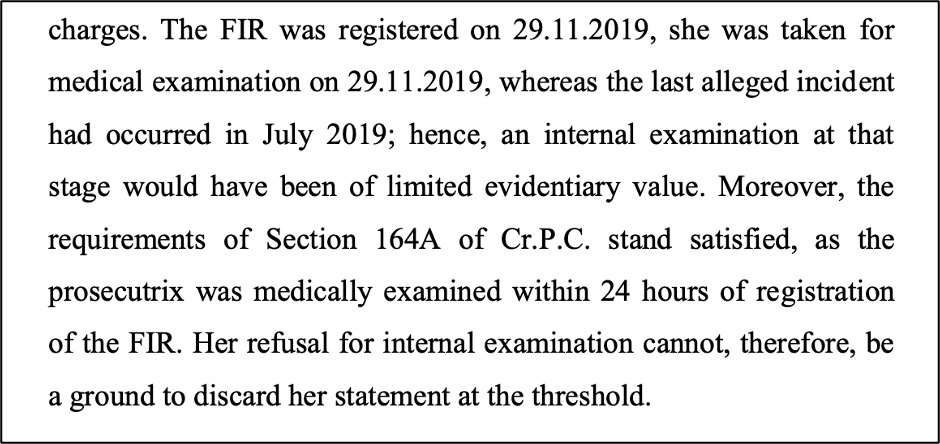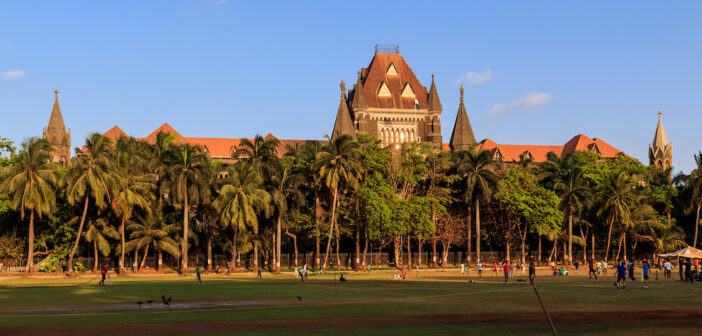In this edition of court judgements review, we look into the MP High Court’s order where it ruled that divorce cannot be granted for ordinary wear and tear of marriage, Bombay HC’s order that documents like Aadhaar or PAN are not conclusive proof of citizenship, Punjab and Haryana HC’s ruling that a child has right to know his parentage, among others.
MP High Court: Divorce cannot be granted for ordinary wear and tear of marriage
The husband and wife married in 2007 and have two sons. Soon after marriage, problems started. The husband said his wife did not want to live with his parents, argued over small matters, stopped following family traditions, and often stayed at her parents’ home. He also claimed she threatened suicide, sometimes refused physical intimacy, refused to live with him peacefully, and finally left the house with their children in March 2024. He asked the court for a divorce, saying she had been cruel to him and had deserted him. The Family Court rejected his request, saying he had not proved cruelty or desertion.
The husband appealed before the Madhya Pradesh High Court in Jitendra Jani vs. Bhumi Jani, insisting that his wife’s behaviour clearly showed cruelty. He said his testimony was not challenged and should have been accepted by the court. The High Court agreed with the Family Court. It said desertion was not proved because the wife had left only a few months before the case was filed, whereas the law requires at least two years. On cruelty, the judges held that quarrels, occasional refusal of intimacy, or differences with in-laws are normal in marriages and do not amount to legal cruelty. The wife had even expressed willingness to return if assured of proper care, showing she wanted the marriage to continue. The judges concluded that the husband had not shown strong enough reasons for divorce. The appeal was dismissed, and the marriage was not dissolved.
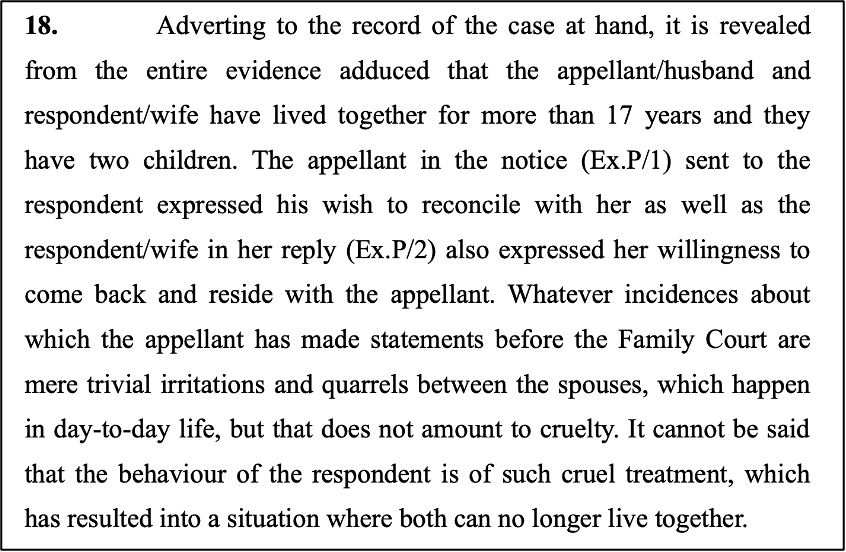
Bombay HC: Documents like Aadhaar or PAN are not conclusive proof of citizenship
In Babu Abdul Ruf Sardar vs. the State of Maharashtra, the applicant sought regular bail under Section 439 of the CrPC in connection with offences under the Bharatiya Nyaya Sanhita, Passport (Entry into India) Act, and Foreigners Order. He was accused of illegally entering India without valid travel documents, suppressing his foreign nationality, and obtaining forged Indian identity papers, including Aadhaar and PAN. Forensic examination of his mobile phone revealed digital copies of Bangladeshi birth certificates of him and his mother, raising suspicion of his foreign origin.
The defence argued that the applicant is a bona fide Indian citizen holding valid Indian documents, has been residing in Thane since 2013, is engaged in business, and suffers from health issues. They contended that the alleged Bangladeshi birth certificate was unverified and received via WhatsApp, hence unreliable.
The prosecution opposed bail, citing ongoing investigations, pending UIDAI verification of Aadhaar, strong evidence of cross-border communication, and the risk of absconding or creating new false identities. The Court emphasised that mere possession of Aadhaar, PAN, or Voter ID does not establish citizenship, which must be determined under the Citizenship Act, 1955. The burden of proof rests on the applicant under Section 9 of the Foreigners Act when credible doubt about nationality exists.
Considering the seriousness of the allegations, national security implications, and risk of absconding, the Court rejected the bail plea but allowed the applicant to reapply if the trial is not concluded within one year.
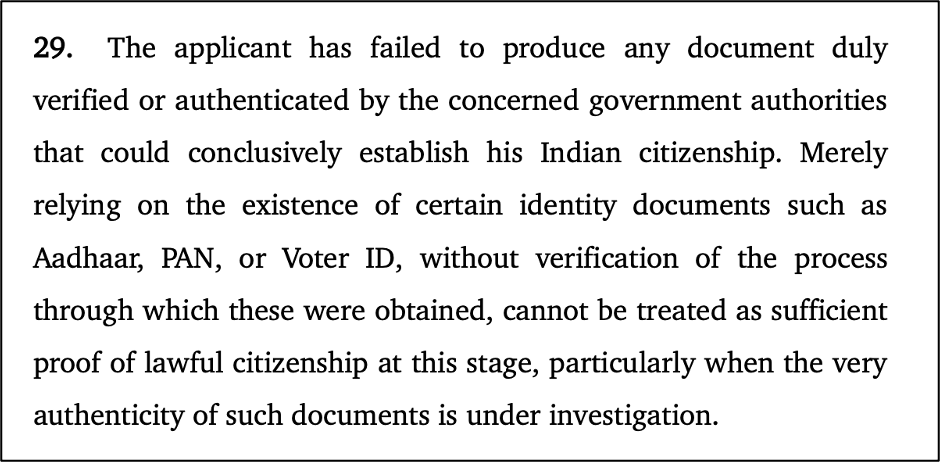
Punjab and Haryana HC: Child Has Right to Know His Parentage
The case Anil Kumar Garg vs. Sahil Garg arose from a suit filed by Sahil Garg, claiming to be the son of Anil Kumar Garg (defendant no.1) and Anita (defendant no.2). He stated that his mother and defendant no.1 lived together as husband and wife and that he was born in 1990 from their relationship. While his mother supported this claim, Anil Kumar Garg denied paternity, calling him a stranger. The trial court allowed Sahil’s plea for a DNA test of Anil Kumar Garg to establish fatherhood, even permitting the use of police force if required.
Challenging this order, Anil Kumar Garg argued that the plaintiff was born during the subsistence of his mother’s earlier marriage with R.C. Bhola, so the presumption under Section 112 of the Evidence Act applied, making him not liable for a DNA test. He also claimed that forcing such a test would violate his right to privacy and dignity.
The High Court, however, noted that since the claim was brought by the child himself (now an adult) to assert paternity, the presumption of legitimacy under Section 112 did not strictly apply. The Court emphasised that every child has the right to know his biological parentage. While privacy concerns of the alleged father were acknowledged, they could not override the child’s interest in truth. Upholding the trial court’s direction for a DNA test but removing the clause for police compulsion, the High Court held that refusal to undergo the test could later invite adverse inference at trial.
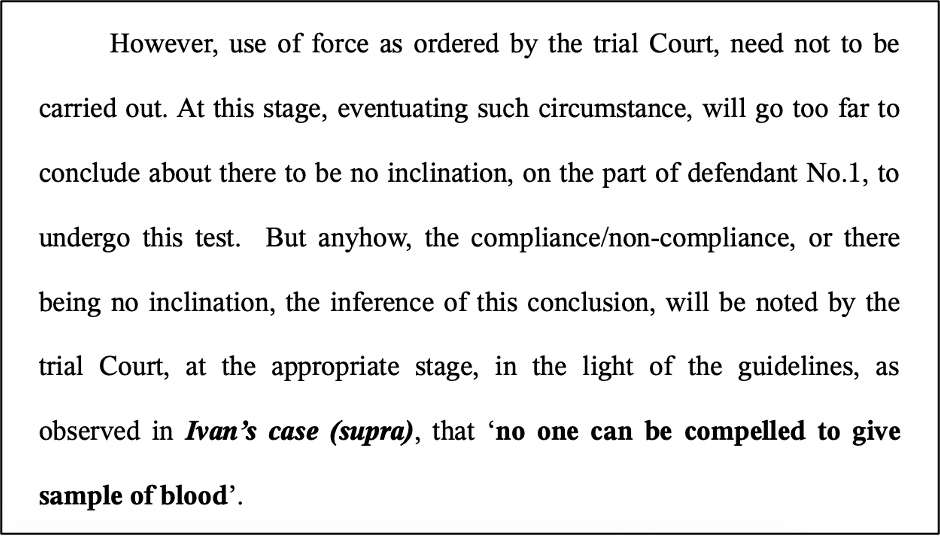
Delhi HC: Promise to marry was illusory from the start, made only to obtain sexual favours, attracts Section 376
In State (Govt of NCT of Delhi) vs. Gaurang Kadyan, the State challenged a Sessions Court order discharging the accused in a rape case registered under Sections 376, 328, and 506 IPC. The prosecutrix alleged that she met the accused through Facebook, and during their meetings, he promised to marry her, administered a drink that made her unconscious, and raped her. She further claimed that he threatened to circulate obscene videos and continued physical relations with her for years under the false assurance of marriage, ultimately refusing to marry on caste grounds.
The Sessions Court had discharged the accused, citing unexplained delay in FIR registration, lack of medical or video evidence, and inconsistencies in her statements. However, the Delhi High Court held that at the stage of framing charges, the trial court should not conduct a mini-trial but only assess whether a prima facie case exists.
The Court observed that since the accused knew from the beginning that his family would not permit an inter-caste marriage, his promise to marry was false from inception and made only to exploit the prosecutrix sexually. This, the Court held, falls within the ambit of Section 376 IPC. Further, threats made by the accused supported charges under Section 506 IPC.
Accordingly, the High Court set aside the discharge order and directed the trial court to frame charges under Sections 376 and 506 IPC and proceed with the trial.
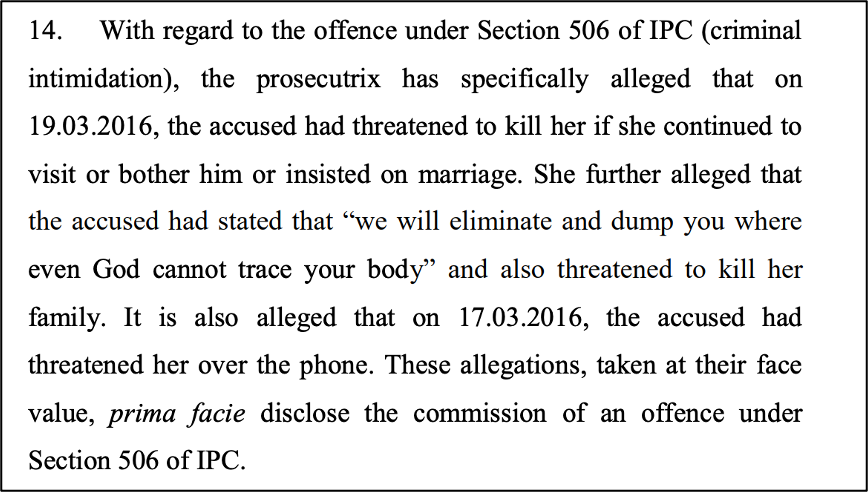
Delhi HC: Refusal of internal medical examination does not nullify rape allegation
The petitioner-accused in Sachindra Priyadarshi vs. State of NCT of Delhi through the Chief Secretary asked the Court to drop the criminal case filed against him in 2019. He faced charges of rape, assault, threats, and causing miscarriage. The woman (complainant), who was his colleague, said that in 2018, he had invited her to his home, gave her a cold drink mixed with something, and raped her after she lost consciousness.
The prosecutrix alleged that the accused, her colleague, invited her home in 2018, spiked her drink, raped her, and later continued sexual relations by threatening to release her nude photographs. She further alleged repeated assaults, threats, and forced miscarriages after pregnancies caused by non-consensual intercourse. The defence argued that charges were based only on her statements, which had discrepancies, and that since she refused an internal medical examination, the requirement under Section 164A CrPC was not met. Hence, they contended, no rape charge could stand.
The Court rejected this argument, holding that refusal of internal medical examination does not vitiate the case, especially since the prosecutrix was medically examined within 24 hours of FIR registration and the last incident was months earlier. It reiterated that at the stage of charge, a strong suspicion based on the victim’s statements is sufficient, and minor inconsistencies are matters for trial. However, since there was no medical proof that the accused had given the woman any drugged or intoxicating substance, the Court dropped the charge related to that offence. But it allowed the other charges related to rape, assault, threats, and forced miscarriage to continue.
